It is so important that you use the right paint if you have lime plaster walls, and we can help guide you for what you need, how to do it, and how to improve your overall indoor air quality. If you are new to lime plasters and want to know the difference between lime plasters and gypsum standard plasters please click here.
When you have lime based plasters, you need to choose a paint that is actually breathable, not just ‘greenwashed’ breathable that you see on almost all plastic paints these days also. Plastic paints are not breathable, not even slightly. Lime plasters need to be able to breathe, so it is important that you have a tested breathable paint for lime plaster, whether it is a natural mineral based paint (that is suitable for painting over lime) or a true (made from lime) breathable lime paint.
If you want something to replace a limewash, then use Graphenstone Biosphere. The easiest paint to use, with most colours is Graphenstone Grafclean, which can be used in the rest of the house over normal plaster / normal paint as well as lime plasters / lime paints.
We stock a few different types of breathable paint for lime plasters, which I will discuss further below.
| Base | Suitable for Lime | Over ‘normal’ paint? | Washable | Colours | Link | |
| Graphenstone Grafclean Interior (Matt) | Mineral | YES | YES | YES | Full Range | BUY |
| Graphenstone Grafclean Exterior (Matt) | Mineral | YES | YES | YES | Most of range | BUY |
| Graphenstone Grafclean Eggshell (Int & Ext) | Mineral | YES | YES | YES | Full Range | BUY |
| Graphenstone Ecosphere (Interior) | Lime | YES | With primer | NO | White / Off Whites | BUY |
| Graphenstone Biosphere (Exterior) | Lime | YES | With primer | NO | White / Off Whites | BUY |
| Graphenstone GCS Interior | Mineral | YES | With primer | NO | Most of range | BUY |
| Graphenstone GCS Exterior | Mineral | YES | With primer | NO | Most of range | BUY |
| Auro 344 Lime Paint (Int & Ext) | Lime | YES | NO | White only | BUY |
Buy Breathable Paints for Lime Plasters
-
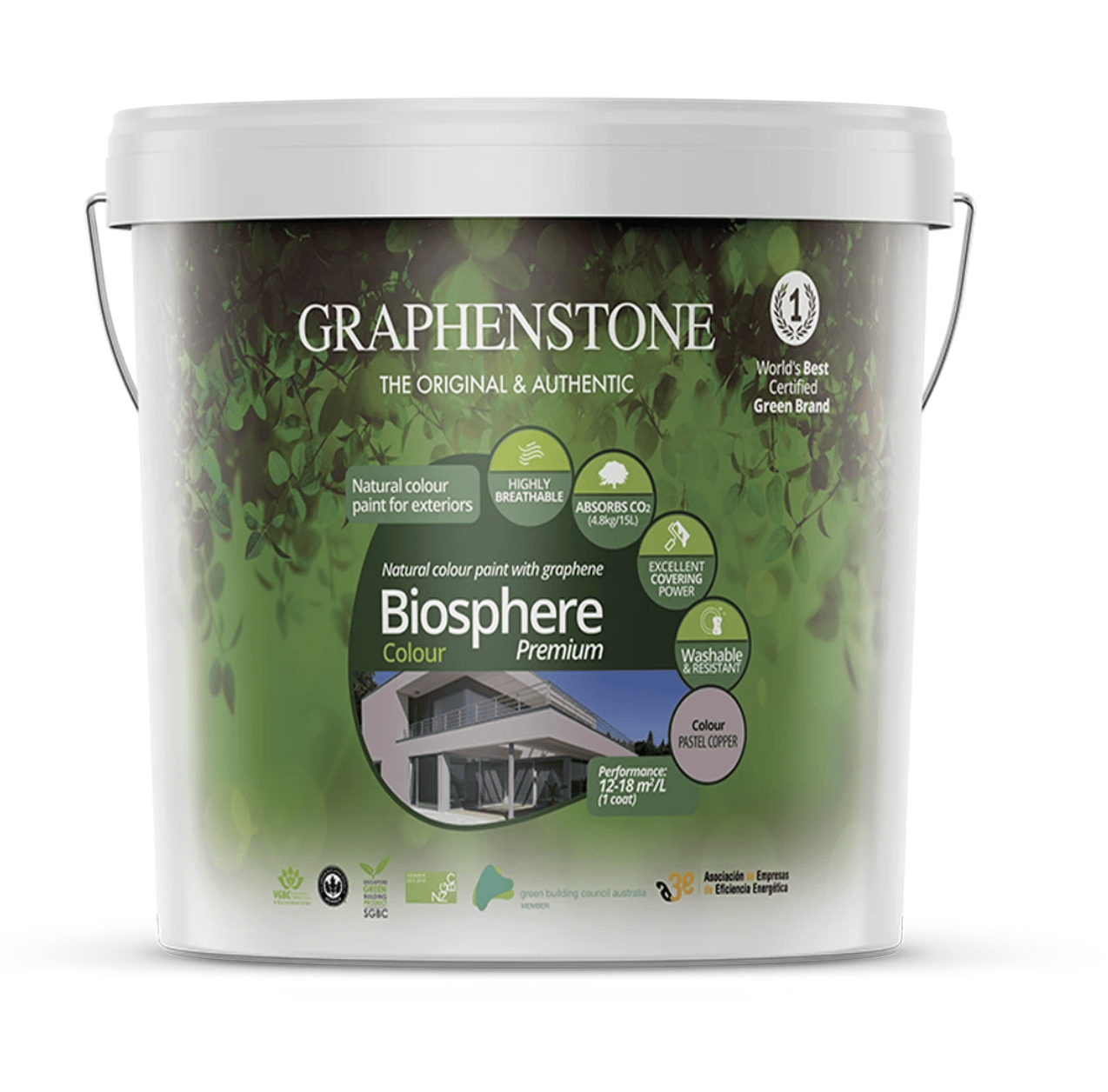 Natural Lime Exterior Paint – Graphenstone Biosphere£4.99 Inc VAT
Natural Lime Exterior Paint – Graphenstone Biosphere£4.99 Inc VAT -
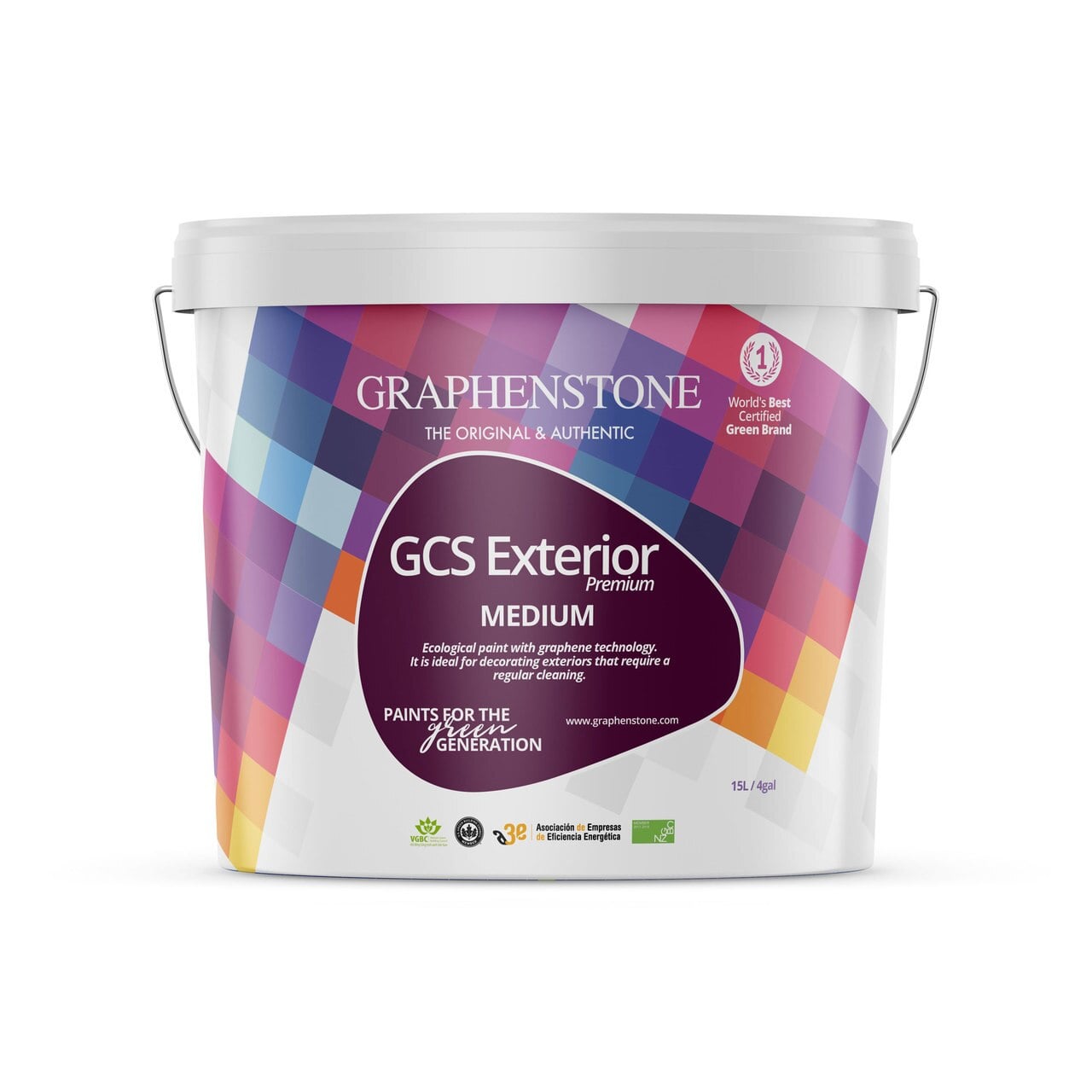 Natural Exterior Heritage House Paint – GCS Exterior Colour Eco Paint£4.99 – £99.00 Inc VAT
Natural Exterior Heritage House Paint – GCS Exterior Colour Eco Paint£4.99 – £99.00 Inc VAT -
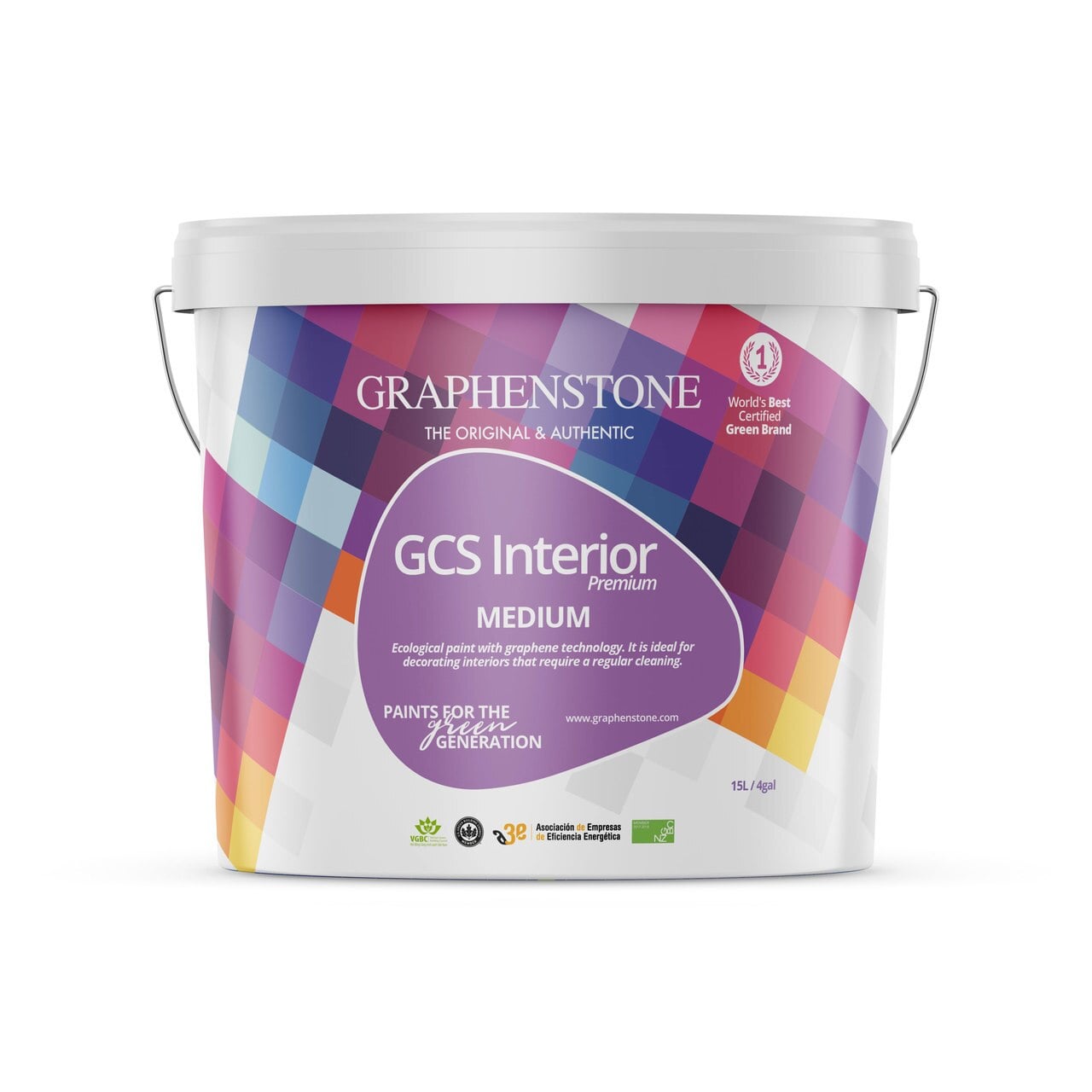 Heritage Natural Wall Paint – Graphenstone GCS Interior for Lime Plasters£4.99 – £87.00 Inc VAT
Heritage Natural Wall Paint – Graphenstone GCS Interior for Lime Plasters£4.99 – £87.00 Inc VAT -
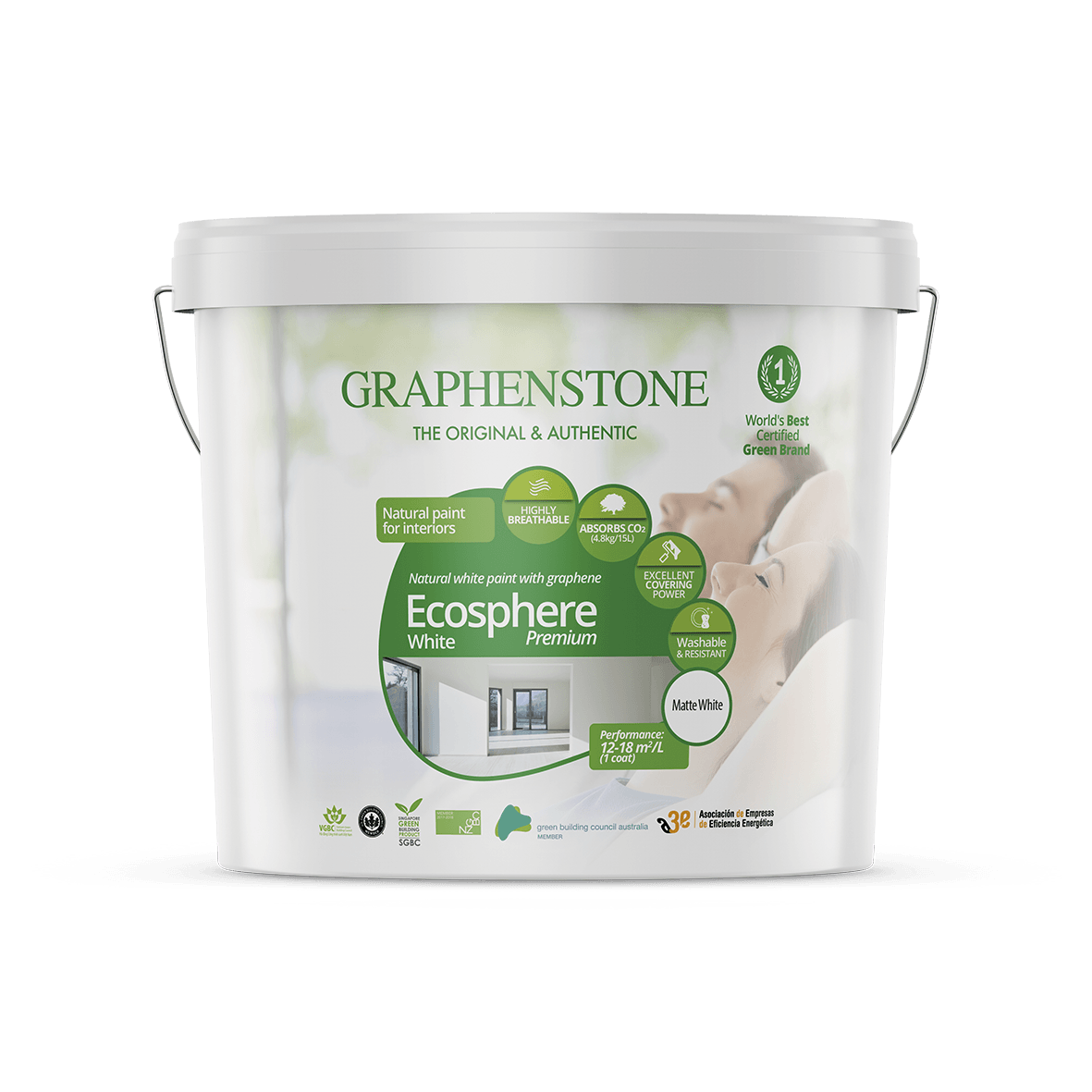 Natural Lime Paint Interior Emulsion – Graphenstone Ecosphere£4.99 – £90.00 Inc VAT
Natural Lime Paint Interior Emulsion – Graphenstone Ecosphere£4.99 – £90.00 Inc VAT -
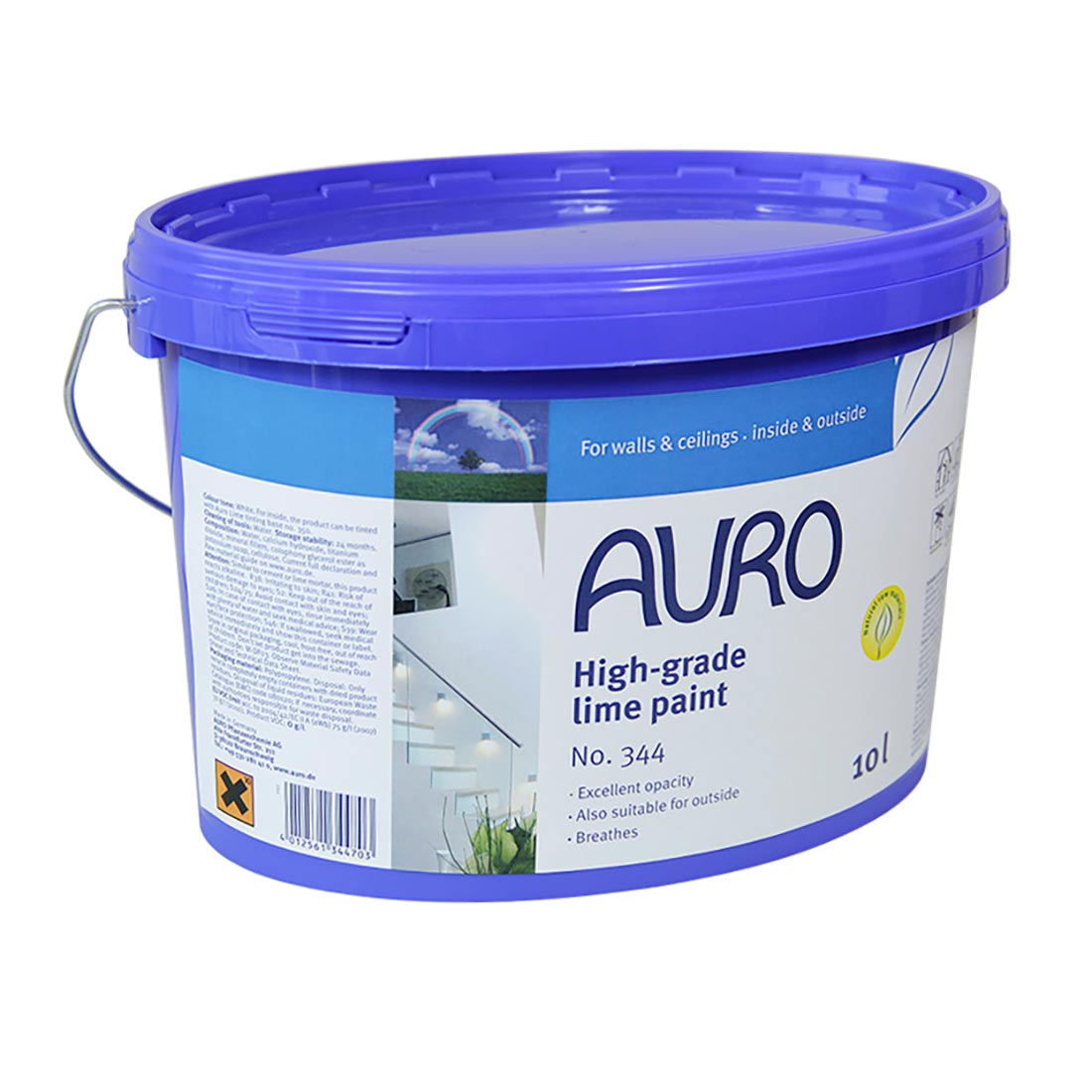 Lime Paint – High Grade Eco & Natural Breathable Lime Paint – Auro 344£54.50 – £103.00 Inc VAT
Lime Paint – High Grade Eco & Natural Breathable Lime Paint – Auro 344£54.50 – £103.00 Inc VAT
Table of Contents
- Lime plasters need vapour permeable paints
- SD value explained for breathable paints
- Can I use any type of paint for lime plaster?
- Painting New Plaster – How do I paint on new plaster?
- Common Questions about painting on lime plaster
Lime plasters need vapour permeable paints
Lime plasters need vapour permeable paints which allow moisture to easily pass through without becoming trapped behind surfaces of impermeability, such as a modern plastic paint or damp barrier, or even plastic insulation.
SD value for breathable paints
Breathable paints are measured by an index of SD value, for instance an SD (steam diffusion) value of 0.01 – 0.05 shows that the moisture needs to travel 1-5 cm to escape.
An SD value of 1 means that vapour needs to travel 1 meter to escape the surface, so 100 times further than a paint with the value of 0.01. If you don’t see the SD value of the paint you are looking at, avoid.
There is currently no regulation for the word ‘breathable’ in relation to paints, so be cautious. More on breathable paints here.
Can I use any type of paint for lime plaster?
Most paint found at your local store just won’t be suitable for lime plasters. ‘Normal paints’ contain plastics and chemicals, which form an impermeable layer that water vapour just can’t get through. Avoid at all costs.
There are lots of paints available for both lime, gypsum and other types of walls, but the difference is not only the composition, IE which chemicals, binders, minerals they contain, but also the breathability. There is a lot of greenwashing around breathability, so in doubt always check the SD value for each paint (lower than 1 is essential)
There are many types of paints made for older houses, lime plasters and older substrates, and the common paints you will come across are
Lime Paints: Lime based, breathable and suitable for lime plasters.
Clay Paints: Both chemical based and natural versions exists, be careful of greenwashing. Usually very flat matt finish. Usually fairly durable.
Distemper: Very old fashioned paint dating back many years, which is a natural mix of chalk, pigment, water with a natural binder such as animal glue.
Mineral paints: Modern natural style paints, containing a mineral base and generally strong and tough. Many types are available, with and without chemicals.
Limewash – Built up of thin coats of lime and water, acting as a sacrificial layer to protect friable brickwork. Great option, but more care and time needed. Read more about limewash here.
Painting New Plaster – How do I paint on new plaster?
If you’ve just had a room plastered and you’re itching to start painting, then read on. This handy guide to painting new plaster will help you avoid the pitfalls and get the immaculate finish you want.
First off, let’s deal with a myth. Many people believe that applying a layer of diluted PVA glue to seal the ‘plaster’ is a must, but professional plasterers and decorators agree that this is a waste of time. It can even lead to a poor paint finish if there are any lumps or inconsistencies in the PVA. We follow the professionals in recommending that you apply our paints directly to the plaster wall. Many conventional and most breathable paints and natural and / or organic paints need to have a first special first layer applied called a ‘mist coat,’ made up of paint diluted with water. This helps the top coat to bind with the plaster, but it’s time consuming and messy.
Common Questions about painting on lime plaster
For most normal painting jobs, where you just need a quality easy to use house paint, that works as well as a modern acrylic, we have a few options for you – but by far the easiest (and top selling) is to use this natural paint here. Available in great colours, tough and washable. Once the plaster has properly dried (usually about 4 weeks) then water thin the paint with around 20% water, and use this as the ‘mist coat’ – this will enable good absorption and adherence to the plaster. After 2-4hours, then you can paint the first of your 2 coats of top coat. Again, just use the same paint – this natural paint Graphenstone Premium would be a great choice.
When choosing a paint for lime plaster breathability is the key. Just one square yard of 5mm-thick lime plaster can contain up to half a litre of water. It can take over six months for the plaster to fully dry, but, if your paint is porous and breathable such as Graphenstone Ecosphere then you can paint much earlier, as the water vapour isn’t sealed in. Have a look at our natural lime paint range for more options. You can still use the Graphenstone Premium over lime, and have access to brighter colours. With all our paints, water thin by 20% to act as the mist coat onto bare plaster.
If you’re painting lime plaster, it’s once again the best choice, as it is both fully breathable and emission-free, meaning there’s no risk of a reaction between the chemicals in the paint and the drying plaster. Once you’ve chosen your paint, make sure you pick the right tools for the job. Since new plaster is a smooth, low-friction surface, a cheap or dilapidated roller can slip and cause an uneven finish. As you’re applying the first coat, you may notice slight blemishes or bumps which weren’t apparent on the raw plaster. If you do find any unsightly ridges or lumps, don’t panic. These can be sanded down with fine sandpaper (make sure you wrap the sandpaper round a plane surface to ensure you get a flush finish), and immediately painted over. If you find any gaps or recesses, these can be filled with wall filler, sanded, then touched up with paint.
No, just water thin the top coat, such as Graphenstone grafclean by 20% – and use this as the mist coat. Once this has dried, then you can use the top emulsion coat as normal.
As above, no, just water thin the top coat, such as Graphenstone grafclean by 20% – and use this as the mist coat. Once this has dried, then you can use the top emulsion coat as normal.
Ideally we suggest using a lime paint over a lime plaster, but to be honest the Graphenstone Grafclean (mineral based) is also very good.
So there you have it: If you’re planning on painting over new plaster, don’t PVA, make sure you save yourself time and effort by using a paint which doesn’t need this solution, and make sure you have the right tools for the job.

